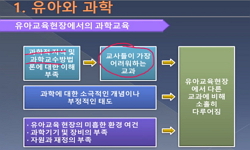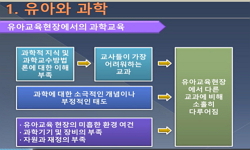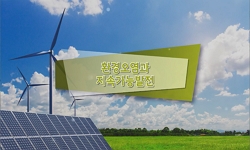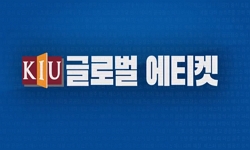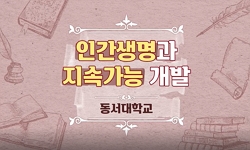인류의 발전을 주도해 온 과학기술이 만들어낸 자연고갈과 기후변화, 이로 야기되는 경제적 불평 등과 빈곤 등의 문제를 해결하고 자연과 인간의 조화를 이루기 위해서는 유아기부터 지속...
http://chineseinput.net/에서 pinyin(병음)방식으로 중국어를 변환할 수 있습니다.
변환된 중국어를 복사하여 사용하시면 됩니다.
- 中文 을 입력하시려면 zhongwen을 입력하시고 space를누르시면됩니다.
- 北京 을 입력하시려면 beijing을 입력하시고 space를 누르시면 됩니다.

지속가능발전지향 유아과학교육의 본질과 실천방향 탐색 = Exploring the nature and direction of early childhood science education for sustainable development
한글로보기https://www.riss.kr/link?id=A105235563
- 저자
- 발행기관
- 학술지명
- 권호사항
-
발행연도
2018
-
작성언어
-
- 주제어
-
KDC
300
-
등재정보
KCI등재
-
자료형태
학술저널
-
수록면
407-418(12쪽)
-
KCI 피인용횟수
1
- DOI식별코드
- 제공처
-
0
상세조회 -
0
다운로드
부가정보
국문 초록 (Abstract)
인류의 발전을 주도해 온 과학기술이 만들어낸 자연고갈과 기후변화, 이로 야기되는 경제적 불평
등과 빈곤 등의 문제를 해결하고 자연과 인간의 조화를 이루기 위해서는 유아기부터 지속가능발전을
지향하는 과학교육이 필요하다. 본 연구에서는 지속가능발전지향 교육의 본질과 유아과학교육의 실천
방향에 대해 고찰하여 지속가능발전지향 유아과학교육의 의미에 대해 알아보고자 한다. 이러한 목적
을 위하여 관련 전문가 18명과 유아교사 15명을 대상으로 지속가능발전의 의미와 지속가능발전지향
유아과학교육의 실천방향에 대해 심층 면접을 실시하였다. 연구 결과, 지속가능발전 지향 유아과학교
육은 ‘유아-교사-생명체간 상호존중’, ‘개별 탐구 기반 공동체 의식 함양’, ‘유아의 눈으로 세상 바라보
기’, ‘관심 주제에 대한 심화와 확장’, ‘지속적 탐구와 몰입’, ‘대화와 공유 중심 탐구’로 범주화 되었
다. 결론적으로 지속가능발전 지향 유아과학교육은 유아가 관심 있는 주제로부터 출발하여 상호 존중
의 탐구 경험을 통해 자신을 둘러싼 자연에 대해 지속적으로 알아가는 과정이라고 볼 수 있다.
다국어 초록 (Multilingual Abstract)
Science and technology have led the development of mankind, but have created problems such as natural depletion, climate change, economic inequality and poverty. The purpose of this study is to explore the meaning of early childhood science for sust...
Science and technology have led the development of mankind, but have created problems such as
natural depletion, climate change, economic inequality and poverty. The purpose of this study is to explore
the meaning of early childhood science for sustainable development to solve these problems and to
contribute to the harmony of nature and human beings. In order to accomplish this research objectives, 18
experts and 15 teachers were interviewed on the meaning of sustainable development and the directions of
early childhood science education for sustainable development. Early childhood science education for
sustainable development was categorized as follows. ‘Mutual respect between child-teacher-organism’,
‘developing individual inquiry-based on community consciousness’, ‘looking at the world with child’s eyes’,
‘deepening and expanding on topics of interest’, ‘continuous inquiry and commitment’, ‘conversation and
sharing-centered exploration’. By these results, it was concluded that early childhood science education for
sustainable development should start from the perspective of children, and was a meaningful process in
which children constantly learn about the nature surrounding themselves based on mutual respect.
목차 (Table of Contents)
- 1. 서론
- 2. 연구방법
- 3. 연구결과
- 4. 결론
- References
- 1. 서론
- 2. 연구방법
- 3. 연구결과
- 4. 결론
- References
참고문헌 (Reference)
1 이연호, "지속가능발전정책 거버넌스의 평가" 동서문제연구원 22 (22): 7-45, 2010
2 조창현, "지속가능발전 추진동향과 정부의 대응방향: 향후 Post-2015 SDG의 맥락에서" 피터드러커 소사이어티 8 (8): 217-254, 2015
3 김지현, "영국의 국가발전전략으로서 지속가능발전의 성과와 한계" 한국환경사회학회 11 (11): 121-158, 2007
4 김은정, "미국의 조기학습기준의 분석을 통한 영아와 유아를 연계한 유아교육과정의 방향 모색" 미래유아교육학회 21 (21): 163-184, 2014
5 조형숙, "만 3-5세 담당 연령별 유아교사의 과학교육 실태 및 개선을 위한 요구" 한국교육문제연구소 34 (34): 181-205, 2016
6 김기성, "독일의 지속가능발전 전략과 환경정책통합" 사회과학연구소 41 (41): 61-81, 2010
7 김은희, "구성주의 접근의 그림자 활동이 유아의 그림자 개념 발달과 과학적 태도에 미치는 효과" 한국아동학회 28 (28): 19-37, 2007
8 곽향림, "구성주의 교실에서 물과 모래의 물리적 현상을 이용한 과학하기 과학의 과정과 개념변화를 중심으로" 한국영유아교원교육학회 8 (8): 269-295, 2004
9 조형숙, "과학교수효능감이 높은 유아교사가 인식하는 좋은 과학수업의 의미" 한국유아교육학회 31 (31): 333-359, 2011
10 R. DeVries, "What does research on constructivist education tell us about effective schooling" The Iowa Academy of Education 2002
1 이연호, "지속가능발전정책 거버넌스의 평가" 동서문제연구원 22 (22): 7-45, 2010
2 조창현, "지속가능발전 추진동향과 정부의 대응방향: 향후 Post-2015 SDG의 맥락에서" 피터드러커 소사이어티 8 (8): 217-254, 2015
3 김지현, "영국의 국가발전전략으로서 지속가능발전의 성과와 한계" 한국환경사회학회 11 (11): 121-158, 2007
4 김은정, "미국의 조기학습기준의 분석을 통한 영아와 유아를 연계한 유아교육과정의 방향 모색" 미래유아교육학회 21 (21): 163-184, 2014
5 조형숙, "만 3-5세 담당 연령별 유아교사의 과학교육 실태 및 개선을 위한 요구" 한국교육문제연구소 34 (34): 181-205, 2016
6 김기성, "독일의 지속가능발전 전략과 환경정책통합" 사회과학연구소 41 (41): 61-81, 2010
7 김은희, "구성주의 접근의 그림자 활동이 유아의 그림자 개념 발달과 과학적 태도에 미치는 효과" 한국아동학회 28 (28): 19-37, 2007
8 곽향림, "구성주의 교실에서 물과 모래의 물리적 현상을 이용한 과학하기 과학의 과정과 개념변화를 중심으로" 한국영유아교원교육학회 8 (8): 269-295, 2004
9 조형숙, "과학교수효능감이 높은 유아교사가 인식하는 좋은 과학수업의 의미" 한국유아교육학회 31 (31): 333-359, 2011
10 R. DeVries, "What does research on constructivist education tell us about effective schooling" The Iowa Academy of Education 2002
11 P. Burger, "Towards a capability approach of sustainability" 19 : 787-795, 2011
12 Y. J., Kim, "The formation of knowledge on the modern science" 35 : 15-38, 2016
13 M. O., Kim, "The effects of teacher’s recognition level, practice level, and practice intention of life respect on toddlers’ life respect" 1 (1): 131-152, 2012
14 B. K., Cho, "The early childhood science education practices of kindergarten teachers with constructive perspectives" 1 (1): 21-52, 2014
15 R. Wilson, "The development of the ecological self" 24 (24): 121-123, 1996
16 T. N. Gladwin, "Shifting paradigm for sustainable development: Implications for management theory and practice" 20 : 847-917, 1995
17 Worth, K., "Science in early childhood classrooms: content and process"
18 B. K., Cho, "Science in Early Childhood Education" Yangseowon 2015
19 L.C. Gray, "Science education for sustainability, epistemological reflections and educational practices: from natural science to trans-disciplinarity" 8 : 127-183, 2013
20 Y.S., Hwang, "Role of S&T in advancing the korea’s economic development and its implications to developing countries" Science and Technology Policy Institute 2010
21 Y. C., Kim, "Qualitative Research Methodology" Academy Press 2012
22 World Commission on Environment and Development, "Our common future" Oxford University Press 1987
23 "National Institute of Korean Language"
24 National Research Council, "Inquiry and the national science education standards: A guide for teaching and learning" National Research Council 2000
25 W. J., Cho, "Ethical character of sustainable development and education" Korea University 2011
26 The Australian Research Institute for Environment and Sustainability, "Education for Sustainability: The role education in engaging and equipping people for change" Department of the Environment, Water, Heritage and the Arts 2009
27 "Education Dictionary" 1999
28 B. K., Cho, "Discourses on the concept of sustainable development" 10 (10): 369-378, 2016
29 H. L., Gwak, "Construcivist Early Childhood Education" Knowledge Community 2015
30 R. Millar, "Beyond 2000: Science education for the future: A report with ten recommendations"
31 Y. Jabareen, "A new conceptual framework for sustainable development" 10 : 179-192, 2008
32 지승현, "21세기 지식기반사회에서의 지속가능발전교육 방향 탐색" 한국환경교육학회 20 (20): 62-72, 2007
동일학술지(권/호) 다른 논문
-
5세 누리과정 교사용 지도서 분석: 대·소집단 활동의 영역별 분포를 중심으로
- 인문사회과학기술융합학회
- 채미영(Mi Young Chae)
- 2018
- KCI등재
-
IT 융합을 통한 3D 지리 교구 제작과 증강현실 앱 개발
- 인문사회과학기술융합학회
- 임충현(Chunghyun Lim)
- 2018
- KCI등재
-
- 인문사회과학기술융합학회
- 김수철(Soo-Cheol Kim)
- 2018
- KCI등재
-
기숙사 대학생을 위한 집단미술치료 적용 및 효과 - 대학생활 적응 및 주관적 생활만족을 중심으로 -
- 인문사회과학기술융합학회
- 한유진(You-Jin Han)
- 2018
- KCI등재
분석정보
인용정보 인용지수 설명보기
학술지 이력
| 연월일 | 이력구분 | 이력상세 | 등재구분 |
|---|---|---|---|
| 2020 | 평가예정 | 신규평가 신청대상 (신규평가) | |
| 2019-12-01 | 평가 | 등재 탈락 (기타) | |
| 2019-01-01 | 평가 | 등재학술지 유지 (계속평가) |  |
| 2016-01-01 | 평가 | 등재학술지 선정 (계속평가) |  |
| 2014-01-01 | 평가 | 등재후보학술지 선정 (신규평가) |  |
학술지 인용정보
| 기준연도 | WOS-KCI 통합IF(2년) | KCIF(2년) | KCIF(3년) |
|---|---|---|---|
| 2016 | 0.33 | 0.33 | 0.32 |
| KCIF(4년) | KCIF(5년) | 중심성지수(3년) | 즉시성지수 |
| 0.33 | 0.32 | 0.407 | 0.14 |





 KCI
KCI 스콜라
스콜라